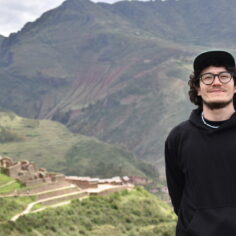Antony Henao finds the teachings of Thích Nhất Hạnh on his journey from scarcity to inner fulfillment.
By Antony Henao on
My upbringing was tainted by scarcity. While I had exactly what I needed while growing up, both of my parents came from families of very scarce resources. They were poor and didn’t have an easy life while growing up.
By the time I was born,
Antony Henao finds the teachings of Thích Nhất Hạnh on his journey from scarcity to inner fulfillment.
By Antony Henao on
My upbringing was tainted by scarcity. While I had exactly what I needed while growing up, both of my parents came from families of very scarce resources. They were poor and didn’t have an easy life while growing up.
By the time I was born, my parents were in their more productive age. They were striving to find their way out of poverty. They wanted to have a good income that would help them to have a good life and give their children a better life than the one they lived.
I was astonished to see how with a few words someone could change so much of the way I saw and approached life.
The situation at home influenced one of the most important decisions I had to make at sixteen. I needed to choose what degree I should pursue at university. This was something big for me. I was told that this decision could determine whether I would have a good life or not.
My family and I saw going to university as a way out of poverty. I was aware that here in Colombia this was an opportunity not everyone had. I was lucky enough to be offered this possibility. So, I wanted to seize it.
My first option was to pursue a degree in psychology. The second option was music. My dad rejected both choices. He didn’t see a promising future in those careers. He wanted me to study something that would secure me a wealthy future.
The only thing I liked more than psychology or music were computers. So, I chose software engineering. My dad agreed and it was settled.
I departed from my native town to a big city and started my university studies at seventeen. I graduated at twenty-two. At that point, generating a good source of income was my main goal in my life. The only thing I would care about was getting a good job and crafting the “perfect career.” In this way I could earn enough money to live a good life. I thought money was the answer to all my problems.
I had achieved what I wanted by twenty-two. I had a good education and a good job. I was also earning more money than I could spend. This led to a couple of years of excesses. I would spend lots of money on fancy restaurants and shoes. Yet, something was missing. I was feeling empty. This led me to a crisis where I couldn’t find any meaning to life. So, I decided to introduce lots of changes to my life in order to find it.
One of the changes I introduced at twenty-four was starting therapy, which helped me a lot in my search for meaning and happiness. This is how I encountered Thích Nhất Hạnh’s teachings. My therapist introduced me to Thầy through a book: How to Love.
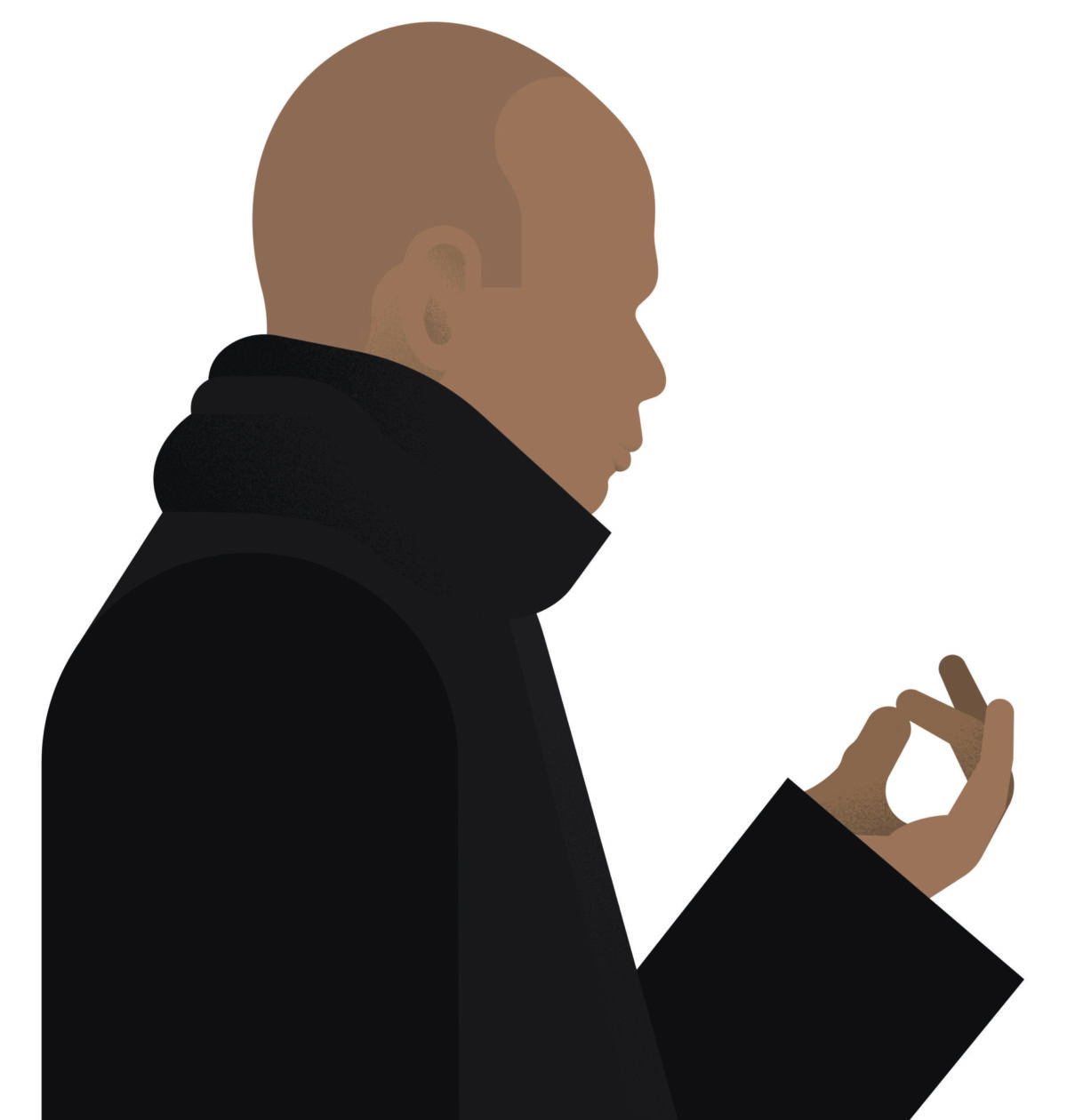
The moment I started reading How to Love, I knew I had found something completely different to what I had read before. I was astonished to see how with a few words someone could change so much of the way I saw and approached life. I knew I had found something different. I had found wisdom.
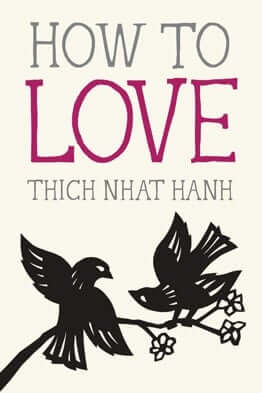
In the upcoming years after I met Thầy’s teaching, I continued working on crafting the “perfect career” and going up in the corporate ladder. I was not sure about what to do with my life. Work was the only thing I knew and lived for. I was a workaholic who was trying to numb his pain and suffering by working as much as possible.
At the same time, I was trying to read every book possible from Thầy. I didn’t know what I was doing back then, but I knew if I approached things mindfully enough, at some point I would know what to do.
One of the most critical phases of my life occurred at twenty-seven. I found what I considered back then “the job of my life.” I was earning a good amount of money. I was doing a job I considered purposeful. I had a good position and I was leading a team of thirty people—that in less than a year became a team of seventy people. Yet, I was unhappy. During this time I burned out twice, got sick, and experienced anxiety. During nights I was unable to sleep and I was unable to rest. I was diagnosed with chronic fatigue syndrome.
This season pushed me to open up to suffering in ways I had never done before. It helped me to realize that I was not happy with the things I was doing. I needed to stop and reevaluate my life.
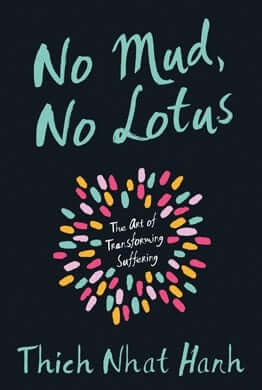
Two books played an important role during this time—No Mud, No Lotus: The Art of Transforming Suffering and Call Me by My True Names: The Collected Poems of Thích Nhất Hạnh.
No Mud, No Lotus allowed me to realize the importance of learning how to suffer. It helped me to get in touch with my suffering. Thanks to this book I realized there was a considerable amount of suffering I had numbed over the years. I was looking for happiness outside of me and needed to learn to come back home.
Getting in touch with my suffering and practicing deep looking led me to quit my job eventually—the one I considered back then my dream job. I was able to recognize I was suffering and I was the creator of such suffering. At some point, I realized I was sticking to the job because of money. While I was doing work I considered purposeful, I was suffering due to many reasons. One of them, it’s that I was constantly pushing myself to be a top performer and putting my body under so much stress that it started to collapse.
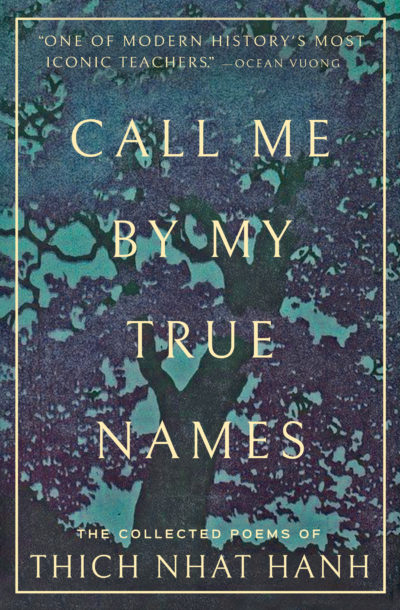
On the other hand, at perfect timing, I was also reading Thầy’s poetry collection, Call Me by My True Names. Finding this book was a beautiful gift. It put me in touch with my feelings and allowed me to be mindful of them. I had never read a poetry book before. Yet, somehow, I got really attracted to this book. It inspired me to look inside and experiment with poetry by myself. Since then, poetry has become an important mechanism to open myself to suffering and understand it.
After I quit my job, I took time off and decided to bring balance to my life. It was one of the most fulfilling, yet challenging phases I’ve ever had in my life. The time off allowed me to be open to my inner suffering and family traumas that were waiting for healing. It was one of the most transformative things I’ve done in my life.
Thầy’s teachings have been a beacon of light in the darkness. While I’m still learning to open myself to suffering and healing, I feel much better. Now, from time to time, I can enjoy the present moment and walk peacefully. I’m learning to find joy in myself and the present moment.
While there’s plenty of work still to be done, I’m learning to come back home and enjoy the process…
With Love,
Antony.
